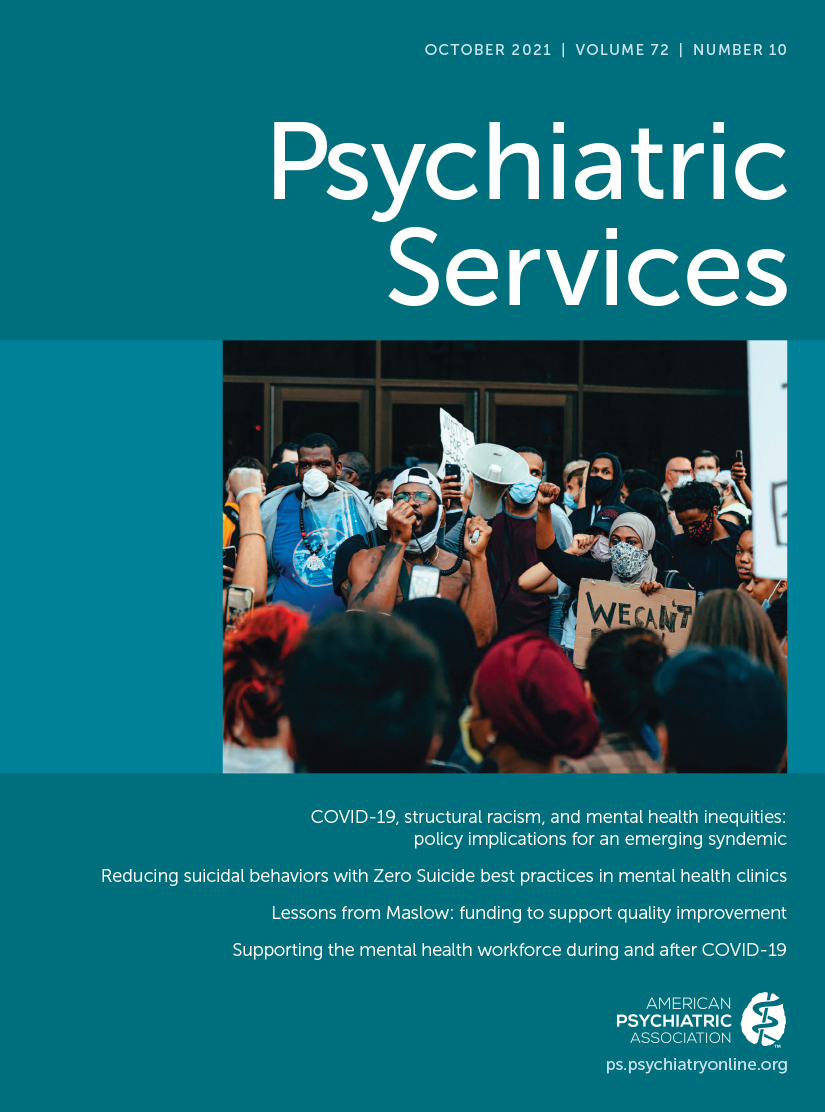COVID-19 in a New York City Behavioral Health Housing and Treatment System
Abstract
Objective:
This study sought to characterize the incidence of COVID-19 illness, hospitalization, and death among congregate and noncongregate cohorts served by a New York City behavioral health agency.
Methods:
From March 9 to May 3, 2020, data were collected on COVID-19 symptoms, testing, hospitalization, and mortality for 8,256 individuals living in 29 congregate programs (residences and homeless shelters) or served by 41 noncongregate programs (scattered-site housing or outpatient treatment programs).
Results:
Of the 218 (2.6%) individuals who developed COVID-19–like illness, 84 (39%) were able to obtain testing. Of the 77 individuals who tested positive, 49 (64%) were hospitalized and 19 (25%) died. Congregate housing, age over 45, and intellectual/developmental disabilities were significantly associated with hospitalization and death.
Conclusions:
Further research on risk and preventive factors is needed to address the high risk for people with serious mental illnesses and intellectual/developmental disabilities during a pandemic, particularly for those living in congregate housing.



